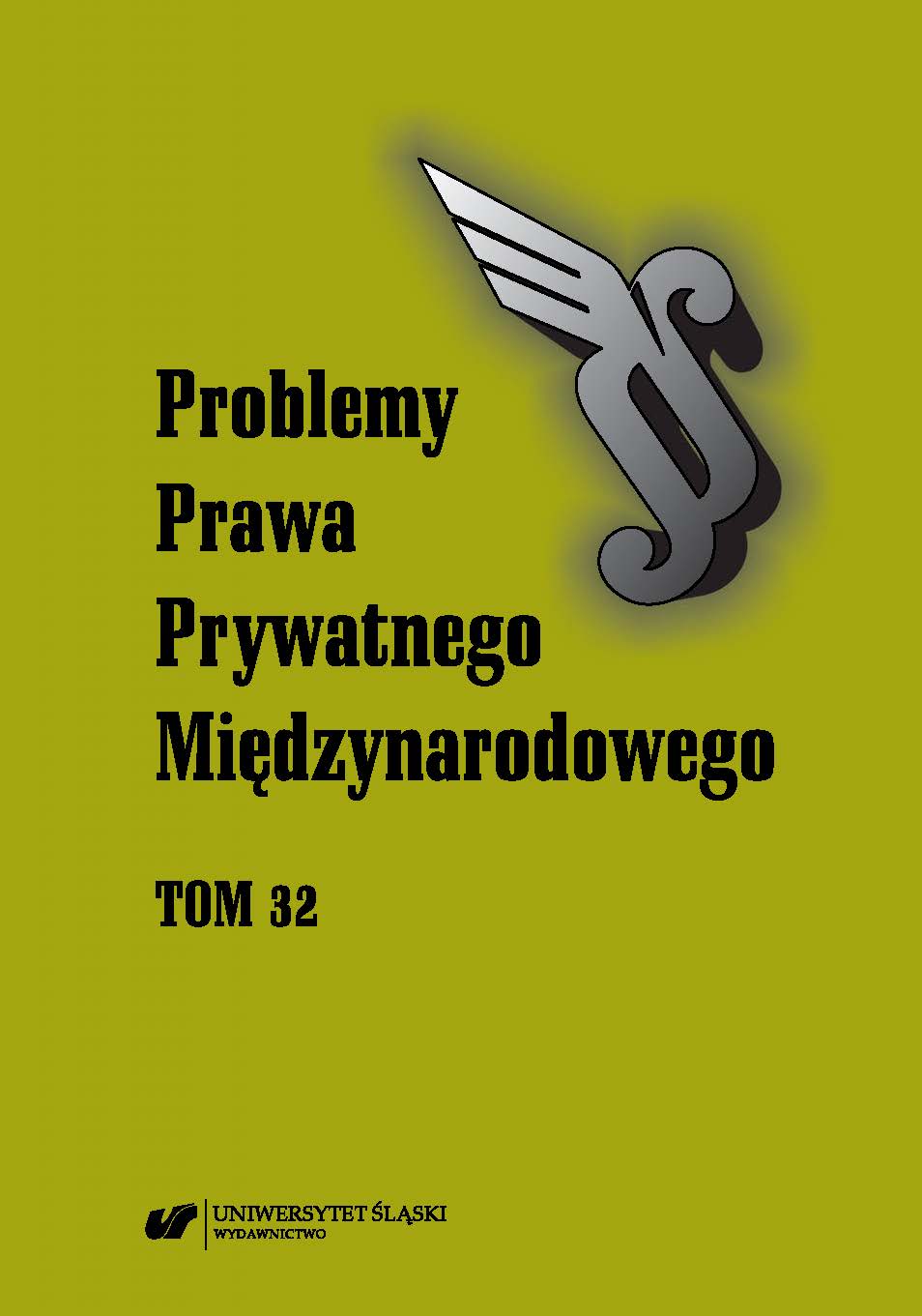Stan obecny i perspektywy przyjęcia przez Serbię nowego prawa prywatnego międzynarodowego
The Present Situation and Perspectives for a New Serbian Private International Law
Author(s): Ewelina KochowskaSubject(s): Law, Constitution, Jurisprudence, Civil Law, International Law
Published by: Wydawnictwo Uniwersytetu Śląskiego
Keywords: Serbia; former Yugoslavia; private international law; change of law; succession of international agreements
Summary/Abstract: The Yugoslav Act of 1982 on resolving conflict of laws with regulations of other countries is still in force in the Republic of Serbia. The law drafted over 40 years ago was considered as innovative at the time of its adoption. At present, the Serbian academic community signals the need to update the current provisions of private international law, both in the spirit of approximation with the law of the European Union and in the need to better embed this law in the present legal order of the Republic of Serbia. The draft of a new act on private international law, prepared in 2014, was not adopted yet, although it was not formally rejected as such in Serbian legislative procedures (as of April 13, 2023) either. Though not formally binding, the draft law has been cited in recent years in the Serbian law journals, being an important point of reference for considerations on questions related to private international law in Serbia. It must be admitted that the progressive Serbian academic community turned out to be an active inspirer, creator and is now also a tireless advocate of changes in the field of private international law in Serbia. Serbia, which has been an EU candidate since 2013, has no particular obligation to introduce specific solutions in the field of private international law into its national law neither before nor after accession. EU law in the field of private international law is contained in regulations that will be automatically and directly applicable in Serbia when it becomes a member of the European Union. This is a dilemma whether to adopt the provisions which, in principle, will have to be repealed after the accession. At the same time, there are several benefits of approximating the law before the accession, including accustoming legal practitioners in Serbia to apply solutions similar to those in the EU, and increasing legal certainty by applying similar solutions of private international law in transactions between entities from Serbia and the European Union (regardless of the accession prospects). The author describes and summarizes the current state of regulations in Serbian private international law and analyses the main changes proposed in the draft law of 2014. The article also presents agreements binding Serbia in the field of private international law, including the still binding 1960 Polish-Serbian agreement.
Journal: Problemy Prawa Prywatnego Międzynarodowego
- Issue Year: 2023
- Issue No: 32
- Page Range: 95-122
- Page Count: 28
- Language: Polish

